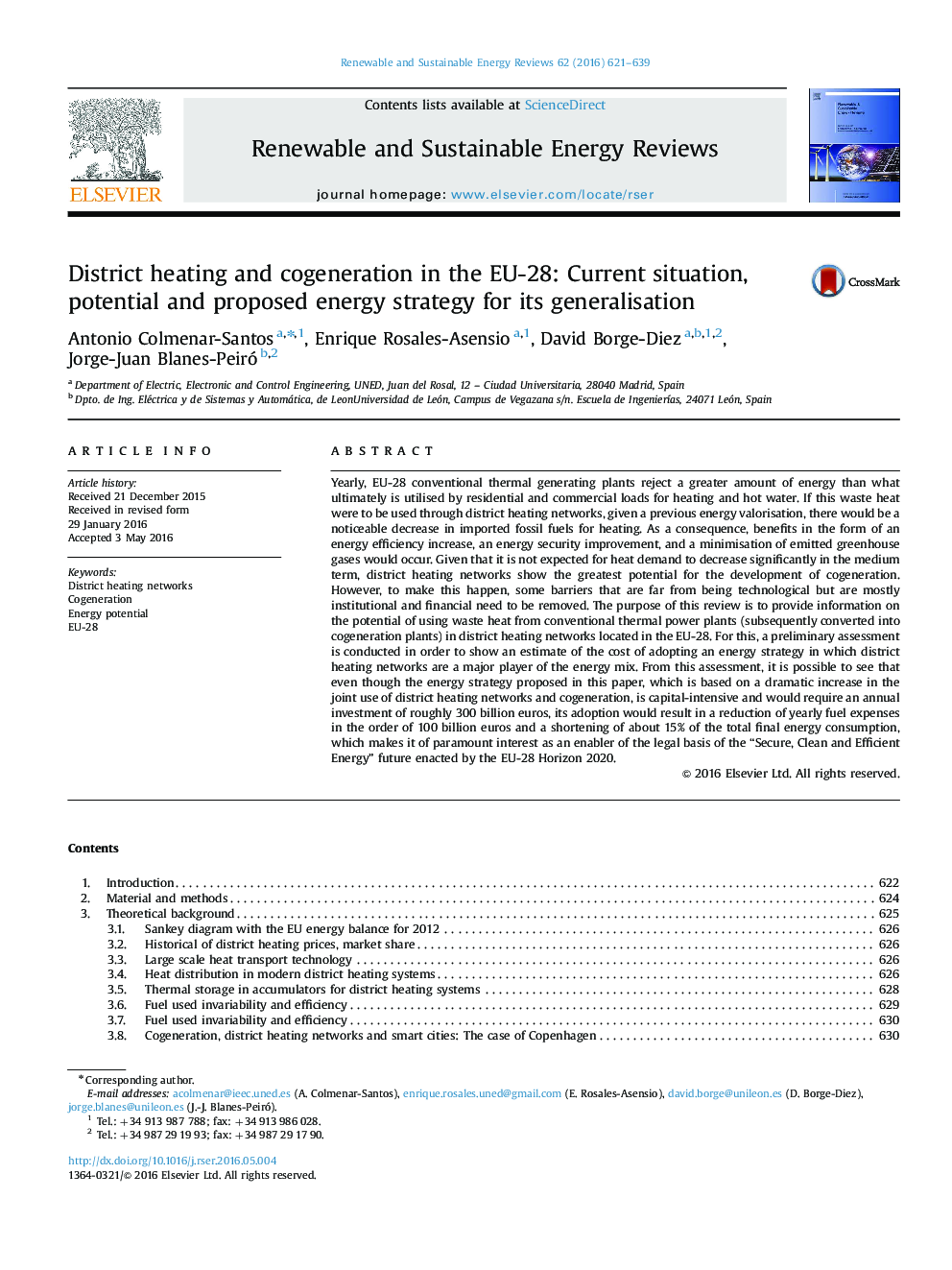| کد مقاله | کد نشریه | سال انتشار | مقاله انگلیسی | نسخه تمام متن |
|---|---|---|---|---|
| 8113568 | 1522323 | 2016 | 19 صفحه PDF | دانلود رایگان |
عنوان انگلیسی مقاله ISI
District heating and cogeneration in the EU-28: Current situation, potential and proposed energy strategy for its generalisation
ترجمه فارسی عنوان
گرمایش مرکزی و همگام سازی در اتحادیه اروپا -28: وضعیت فعلی، استراتژی انرژی بالقوه و پیشنهادی برای تعمیم آن
دانلود مقاله + سفارش ترجمه
دانلود مقاله ISI انگلیسی
رایگان برای ایرانیان
کلمات کلیدی
موضوعات مرتبط
مهندسی و علوم پایه
مهندسی انرژی
انرژی های تجدید پذیر، توسعه پایدار و محیط زیست
چکیده انگلیسی
Yearly, EU-28 conventional thermal generating plants reject a greater amount of energy than what ultimately is utilised by residential and commercial loads for heating and hot water. If this waste heat were to be used through district heating networks, given a previous energy valorisation, there would be a noticeable decrease in imported fossil fuels for heating. As a consequence, benefits in the form of an energy efficiency increase, an energy security improvement, and a minimisation of emitted greenhouse gases would occur. Given that it is not expected for heat demand to decrease significantly in the medium term, district heating networks show the greatest potential for the development of cogeneration. However, to make this happen, some barriers that are far from being technological but are mostly institutional and financial need to be removed. The purpose of this review is to provide information on the potential of using waste heat from conventional thermal power plants (subsequently converted into cogeneration plants) in district heating networks located in the EU-28. For this, a preliminary assessment is conducted in order to show an estimate of the cost of adopting an energy strategy in which district heating networks are a major player of the energy mix. From this assessment, it is possible to see that even though the energy strategy proposed in this paper, which is based on a dramatic increase in the joint use of district heating networks and cogeneration, is capital-intensive and would require an annual investment of roughly 300 billion euros, its adoption would result in a reduction of yearly fuel expenses in the order of 100 billion euros and a shortening of about 15% of the total final energy consumption, which makes it of paramount interest as an enabler of the legal basis of the “Secure, Clean and Efficient Energy” future enacted by the EU-28 Horizon 2020.
ناشر
Database: Elsevier - ScienceDirect (ساینس دایرکت)
Journal: Renewable and Sustainable Energy Reviews - Volume 62, September 2016, Pages 621-639
Journal: Renewable and Sustainable Energy Reviews - Volume 62, September 2016, Pages 621-639
نویسندگان
Antonio Colmenar-Santos, Enrique Rosales-Asensio, David Borge-Diez, Jorge-Juan Blanes-Peiró,
